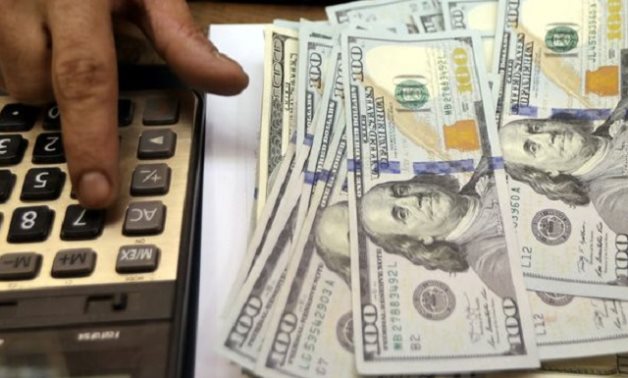
The steps taken by Banque Misr and Commercial International Bank are part of an effort to attract hard currency, which the Egyptian market has been facing a shortage of for several months - File Photo
CAIRO - 28 July 2023: Arab African International Bank, one of Egypt's prominent financial institutions, has recently issued a savings certificate denominated in Egyptian pounds with a record return of 40 percent over a three-year period. This move comes on the heels of "Banque Misr" and "Commercial International Bank" launching new dollar-denominated investment certificates with high returns of up to 7 percent. Simultaneously, several other banks are considering the possibility of offering high-yield dollar certificates, following the lead of Banque Misr and Commercial International Bank, as the Egyptian banks are engaged in a race to maintain their share of deposits.
The steps taken by Banque Misr and Commercial International Bank are part of an effort to attract hard currency, which the Egyptian market has been facing a shortage of for several months. The issuance of the savings certificate by Arab African International Bank with such an attractive return reflects the competitive environment among Egyptian banks to secure their portion of deposits.
The newly issued savings certificate by Arab African International Bank comes with a minimum deposit requirement of 5,000 Egyptian pounds and subsequent multiples of 1,000 pounds, without a maximum limit. The certificate cannot be redeemed before six months from the date of issuance. The early redemption interest rate deduction is structured as follows: if the certificate is broken after six months, 95 percent of the interest is deducted, 63 percent is deducted in the second year, and 28 percent is deducted in the third year.
Alan Sandib, Head of Research at "Naeem Financial Investment," pointed out that the banks' prepayment of interest is a marketing strategy to retain their market share of deposits. When considering the interest on an annual basis for the Arab African International Bank certificate, it would equate to 13.3 percent.
Moreover, Banque Misr and Commercial International Bank have issued dollar-denominated savings certificates with a 3-year maturity and an annual return of 9 percent, disbursed upfront, equivalent to 27 percent of the certificate's value over the entire period in Egyptian pounds. Redemption of these certificates is made in dollars on the maturity date, with a quarterly interest payout of 7 percent in dollars. Borrowing up to 50 percent of the certificate's value in Egyptian pounds is allowed with a maximum limit of up to 10 million pounds and a lower return of 2.25 percent above the central bank's lending rate.
Amr El Alfy, Head of Research at "Prime Investment," believes that these new certificates may attract individual Egyptian investors who hold more dollars than institutions or foreigners. However, they will also present a higher cost to the banks.
This rush by Egyptian banks to introduce certificates with cumulative upfront returns comes one week before the fifth monetary policy meeting of the year in Egypt, where interest rates will be discussed. In its June meeting, the Central Bank of Egypt maintained the interest rate at 18.25 percent, having raised it by 200 basis points in March, the first increase during the current year, and by 800 basis points the previous year, as part of efforts to control high inflation.
Egypt's financial sector is witnessing significant efforts to attract deposits and encourage savings through competitive certificate offerings. These moves come amidst Egypt's commitment to managing economic challenges and ensuring the stability of its financial systems. The introduction of high-yield savings certificates reflects the confidence of banks in Egypt's economic prospects and their willingness to provide attractive investment options for both local and foreign investors. Such measures demonstrate the resilience and adaptability of the Egyptian financial sector in navigating uncertainties and fostering economic growth.
Comments
Leave a Comment